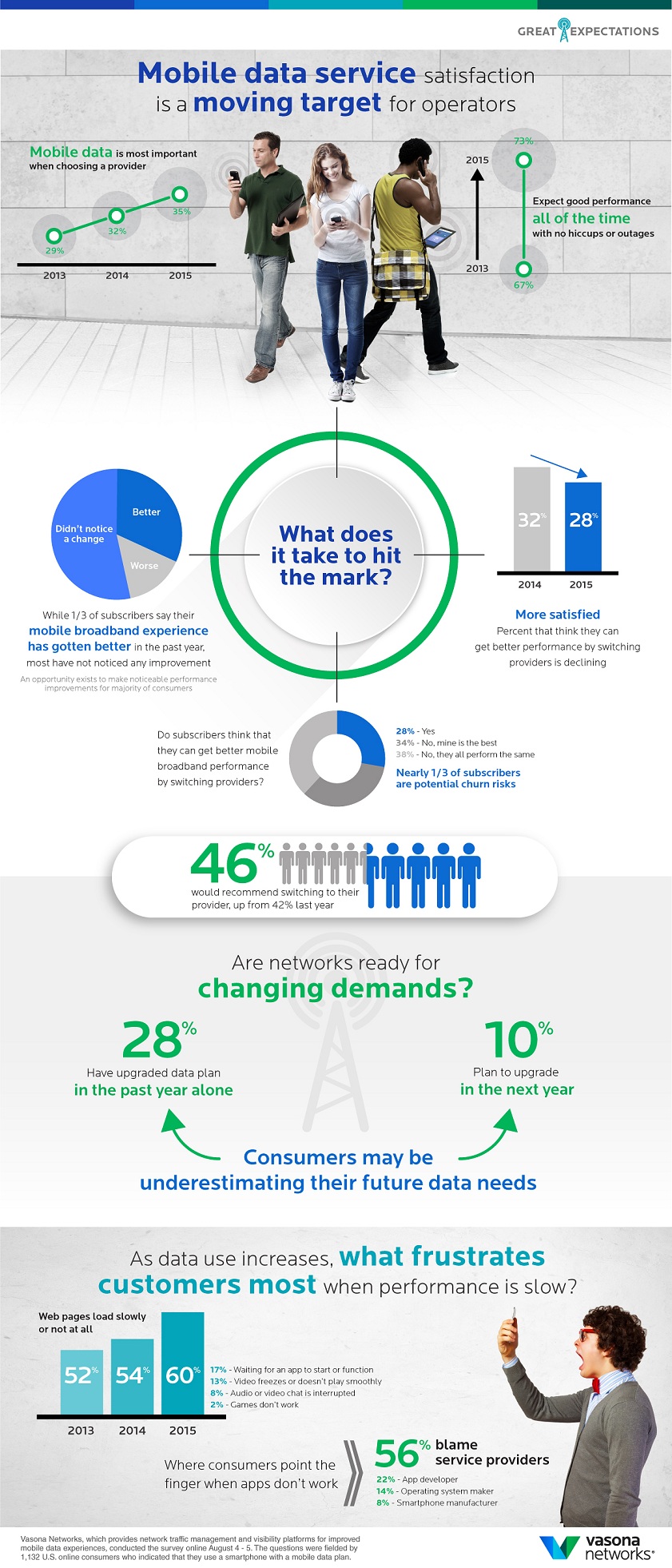The importance of mobile Internet performance for smartphone owners is increasing, with expectations at an all-time high, according to Vasona Network’s annual survey of smartphone owners.
At the same time, there is a trend of gradually increasing satisfaction with the performance of mobile data services, and more consumers are inclined to recommend their provider. While perception of mobile data performance improves, simultaneous trends of data plan upgrades point to constantly moving targets for wireless carriers to continue meeting expectations.
According to the survey:
■ The importance of mobile Internet performance when choosing a service provider rose again from 32% in 2014 to 35% this year
■ Users expecting “good mobile data performance all of the time, with no temporary hiccups or outages” remains high at 73% versus 72% last year
■ 32% of smartphone owners have upgraded their mobile data plans during the past year, with an additional 10% planning to do so within the next year.
While the importance of mobile Internet performance to smartphone owners continues rising, survey results indicate more satisfaction along these lines:
■ 35% of respondents believe that their provider offers the best mobile broadband performance available, up from 31% last year
■ 46% would recommend switching to their provider, up from 42% last year
■ 28% now think that they can get better performance by switching, down from 32% last year
■ 32% say that the mobile broadband experience offered by their provider has gotten better during the past year, while only 15% think that it has gotten worse
Mobile operators have made good headway in efforts to deliver solid data experiences. This positive trend is notable, but with one third of smartphone owners recently upgrading plans and more planning to do so soon, it remains important that carriers innovate with technologies that are responsive to rising demand and able to efficiently utilize available spectrum.
Additional findings from the survey suggest that operators should focus on improving mobile browsing performance. A majority of respondents (60%) say that “web pages loading slowly or not at all” is the single most frustrating experience when networks are slow. This is up from 54% last year. And when apps don’t work, operators still get the most blame at 56%, which is more than app makers, device manufacturers or OS developers combined.
John Reister is VP of Marketing and Product Management for Vasona Networks.



